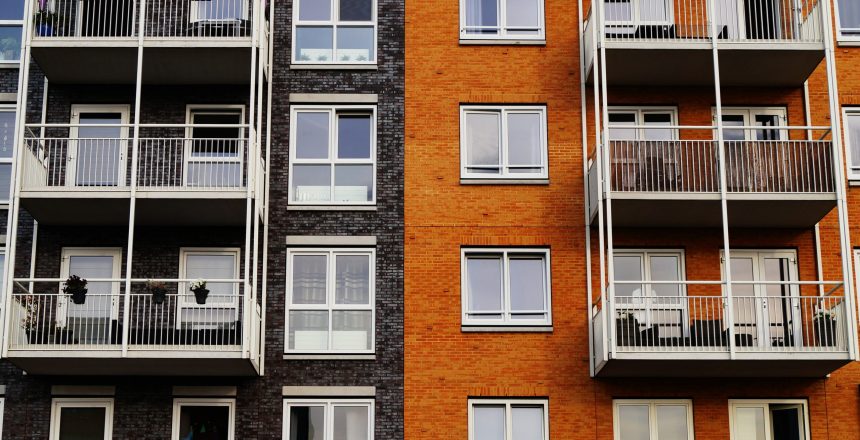It might be difficult to decide between buying and renting a home. Most Indians favor homeownership over apartment living. Both sides have clear advantages and disadvantages. This review’s objective is to analyze both possibilities.
Pros & Cons When You Rent A Property
- Renting a home will take money out of your pocket every month without adding an asset.
Renting can make you relocate every year, which entails to loss of time, money, and energy. There’s no ease of owning. - If you are renting a home, which is ready to move in because it is closer to the workplace. Most importantly, a home positioned in a developed locality offers you sufficient time for other important areas of life.
- It is easy to plan various long-term returns like mutual funds (14% per annum) if the rental amount is kept bare minimum, and the remaining disposable income is directed toward other long-term investments.
- When it comes to renting a residential property, there exists a 10% increment every year. i.e. Long-term property Compound Annual Growth Rate (CAGR) – 10%
- Renting offers you flexibility in terms of changing locations if your profession demands it. It offers the freedom to take career breaks without having to worry about EMIs.
- If you’re renting, you may need to invest consciously in other sources and get higher returns from an investment of tech stocks IPO long-term or as an angel investor in start-ups.
Returns On Renting
The only savings will come from mutual funds or other investment returns (after paying rent), and the entire amount of rent paid over the course of 30 years will not result in any further returns.
If you rent a property, you will have the opportunity to set the rent price in accordance with your monthly income, which will allow you to invest more in mutual funds.
Why Pay Rent When You Can Pay Emi And Own An Asset?
Why pay rent when you can pay EMI and own an asset? is the most heated argument made by well-wishers or any real estate companies? The statement is valid because it makes sense—site value rises a year, yet a landlord receives nothing from the rent.
The argument has a tiny weakness, though, that most people don’t notice unless you look closer. It has to do with the price of real estate in India and how we go about purchasing a home. Let’s use Danny as an example to better understand this.
Danny lives on rent in a 2 BHK apartment for Rs. 20,000 in a good residential suburb in Bangalore. Now in case, he wishes to buy a house where his EMI is the same as that of rent, it becomes quite difficult to find a property in that location.
In this case, he must look for houses in other newly developed areas of the city that are within his price range.
Bangalore includes a number of independent communities, including Whitefield and Sarjapur. They are profitable because they have easy access to tech parks, social and industrial infrastructures, and educational institutions.
These areas offer a good variety of housing options, from costly apartments to luxury villas. Plots like Prestige Marigold in North Bangalore are easy to purchase and come with a lot of amenities and a great society.
Key Factors Involved In Buying A Home
HIGH RENTAL COSTS
In vibrant cities like Mumbai and Hyderabad, where rent is expensive, home-buying trends are particularly prevalent.
These cities have high monthly rental costs, making it challenging for typical middle-class homebuyers. In simplest terms, the average EMI is equivalent to the typical monthly rent. Therefore, compared to renting a property, purchasing a home is the more economically efficient option.
The number of homebuyers in these capital cities has increased due to the expansion of affordable housing options in outlying areas of the city. It provides reliable connectivity while requiring less money on average.
In some cities, rental housing is also common, but only in nice neighborhoods that are close to the city. The cities that give homebuyers more precedence include Bangalore, Delhi, Pune, and Hyderabad. Rental homes are typically preferred by the working migrant population over home ownership.
In a city like Mumbai, the cost of homeownership is too high compared to renting a house. For instance, the cost of the average rental of a 2 BHK unit in Mumbai’s Bandra (West) is Rs 70,000 – Rs.90, 000 per month.
The cost of buying a 2 BHK unit with a built-up area of under 700 sq. ft. (i.e. Rs 34,000 per sq. ft.) is around Rs 2.4 crore.
The average EMI for this amount is nearly Rs. 1 lakh. If you are locked in for 20 years due to a home loan, it is not the best choice. Instead, a city like Bangalore may be the best choice for buying a home.
HOME LOAN AT EARLY AGE + DREAM HOME = STRESS-FREE RETIRED LIFE
With a mortgage loan, purchasing a home appears possible. People take out large loans, which result in large monthly payments for EMIs. The savings are stretched as a result.
The key element is that you should start saving for your retirement at a young age, between 28 and 33 years old so that you have the energy and time to manage your EMI for a long time.
The interest on a 20-year home loan with a principal amount of Rs. 1 crore and an annual interest rate of 7 percent comes to almost 1.4 crore, which is greater than the total amount of your loan and property taxes.
These figures are difficult to ignore. Renting, however, is profitable or not depending on the interest rate and loan term. Over time, land costs will also skyrocket, driving up the price per square foot in some areas unfairly.

